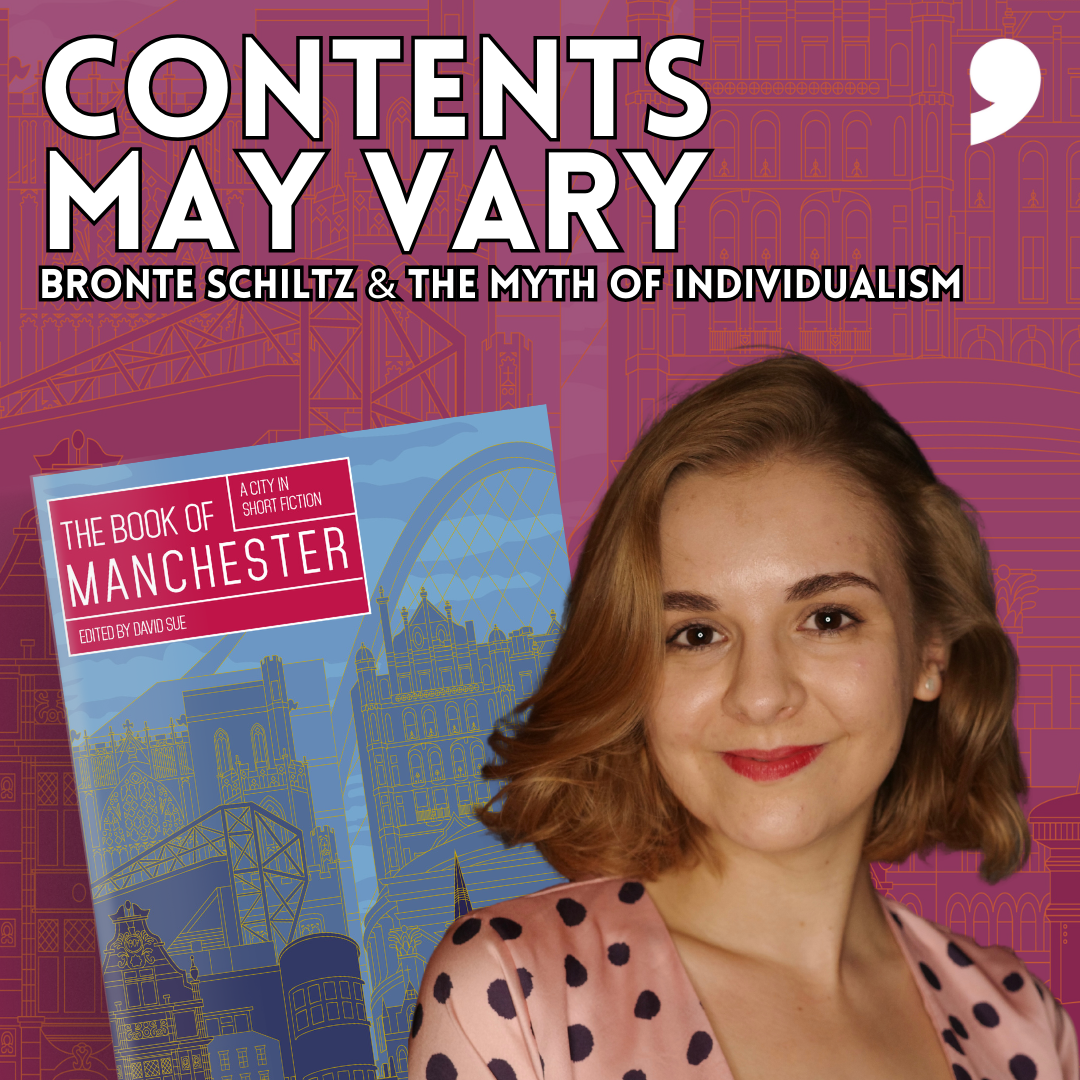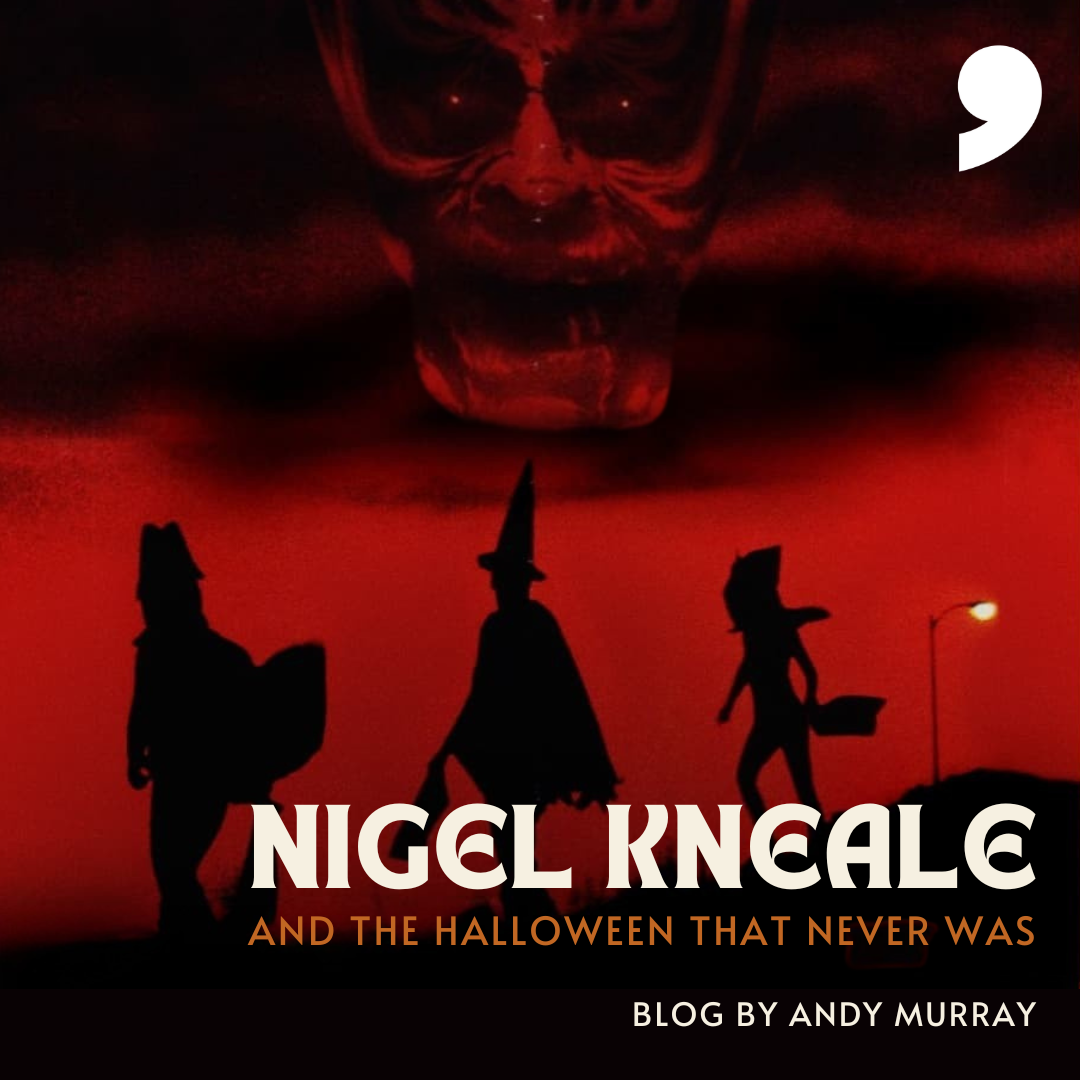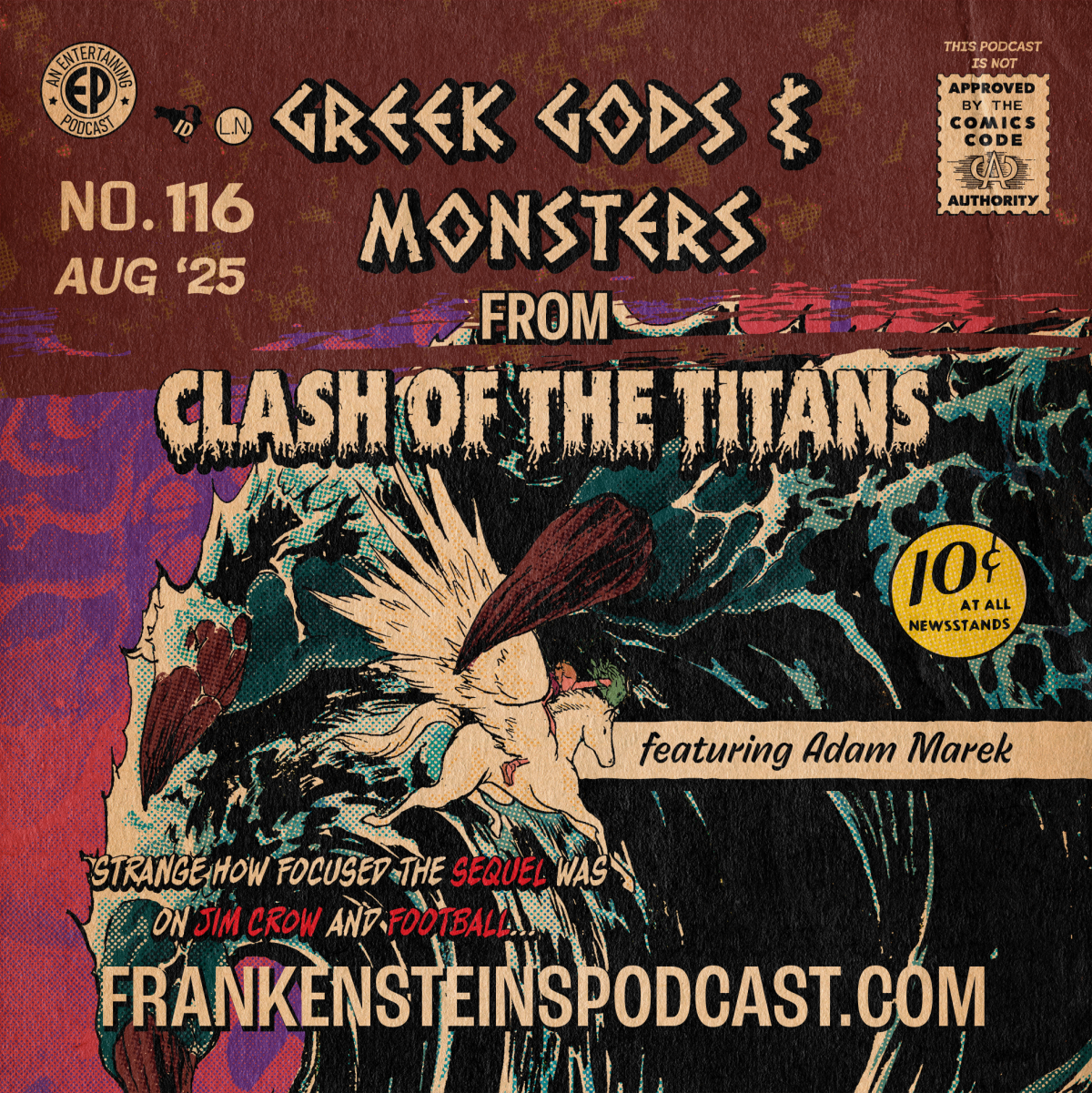Contents May Vary: Brontë Schiltz Author Blog
The Book of Manchester contributing author, Brontë Schiltz, speaks on the influences behind her story, ‘Contents may vary' - from the fluid state of being, the myth of individualism and the seemingly innocuous images that stick with us.
In the winter of 1997, my mum rolled a pink pair of socks onto my feet. I was two years old at the time and remember nothing else from that year – not the death of Princess Diana or Labour’s landslide election or the release of Spiceworld – but I remember those socks, the sensation of them against my feet, as if it happened yesterday. If it had, of course, I would remember it with at least slightly more accuracy – in my recollection, the socks look exactly like a rabbit-shaped pencil case that I didn’t own until years later. But the fact of remembering it at all has interested me for years.
I began writing a very early version of “Contents May Vary”, my story in The Book of Manchester, ten years ago, when I was a creative writing undergrad at Royal Holloway University of London. I had just read Joan Didion’s 1976 lecture, Why I Write, in which she describes a preoccupation with the opaque details of her experience: “Why did the oil refineries around Carquinez Straits seem sinister to me in the summer of 1956? Why have the night lights in the Bevatron burned in my mind for twenty years? What is going on in these pictures in my mind?” This struck me – at the time, I had lived a relatively sheltered life and did not have much in the way of experience to draw on. But I had images. The story began as a study of the moments, both remarkable and banal, that burn themselves onto our brains.
Then, when I was in my early twenties, two things occurred. First, I experienced something that fractured my sense of self. Then I moved to Manchester. The fracturing was followed by a period of mourning – I missed my “old self”, which felt devastatingly irretrievable. But, in the years that followed, I came to a new understanding of what it means to speak of “I” – not a concrete entity vulnerable to destruction but a process of flux. We know this instinctively, of course – when we say, “I am tired,” “I am hungry,” “I am bored,” we do not mean that this is an eternal and intrinsic state of being; why should it feel any more definite to say “I am clever” when sometimes our brains are foggy or “I am kind” when sometimes we ignore people asking for help on the streets, or are not very nice to the people we love? We might be often clever and kind; we need not plan our own funeral if occasionally we are not.
From this vantage point, it was possible to observe how “I” had been changed, constantly, not just by tragedies, but also triumphs and, for that matter, tediums – trips to the supermarket, the walk to work. But it was coming to Manchester that really drove this home for me. I loved Manchester before I lived here, and it has changed me in many ways, some concrete (my friends, my career, the view from my window) and some more abstract (a sense of a real possibility of earning a living through creative work, an openness with strangers, an indifference to rain). The “I” that I speak of would not and could not exist anywhere else.
The story is, in some ways – and fittingly, I feel, given the city’s prominent role in the history of socialism – about the myth of individualism. When I was younger, I bought into this myth, the cultural celebration of independence – I was and am an introvert; I enjoy spending time alone. But even on the days when I stay at home and see nobody except my best friend, with whom I live, I wake up in a flat converted by other people in a mill built by other people, get out of a bed made by other people, wash with water treated and plumbed by other people, dress in clothes made by other people, cook food grown by other people with energy generated by other people. We are so deeply reliant on countless other people just for the meeting of our most fundamental needs. And most of us would not want it any other way – just the thought of having to take the bins out every week for the rest of my life sometimes fills me with despair; I have absolutely no desire for the responsibility of actually disposing of the waste myself that would come with independence proper. Our lives are carved out in ways that we will never fully understand by millions of people who we will never meet.
My narrator’s life is created by the people close to her – her mother, her friends, her wife – and by those less close – the drama teacher who first takes her to the Palace Theatre, a ticket inspector on the Metrolink. It is also shaped by the art that she loves – Les Misérables, Blondie. This is drawn from my own life also – if my mum had not let me watch “The Landlady”, a 1979 episode of Roald Dahl’s Tales of the Unexpected, when I was still at infant school, my life would almost certainly have taken an entirely different path. And, perhaps most importantly for a collection with this title, it is a life built by Manchester – by its schools, its bars, its theatres, its hospitals. Like me, my narrator was not born here, and like me, she would not be herself – or rather any of her selves – anywhere else.
The best stories, I believe, explore both the abstract and the particular. The Divine Comedy’s 1994 song “Don’t Look Down” is about an encounter with the divine and a fear of Ferris wheels – perfect. So, this is a story about what it means to speak of the self, and to love, and to lose, and it’s also about nights out in the Northern Quarter and walks around New Islington Marina. I hope it changes you, if only for the time that it takes you to read it.
Brontë will be reading from her story in The Book of Manchester at the Northern Publishers' Fair at Manchester Central Library on Friday October 5th 2024. Free entry but please RSVP here.
Buy The Book of Manchester HERE


